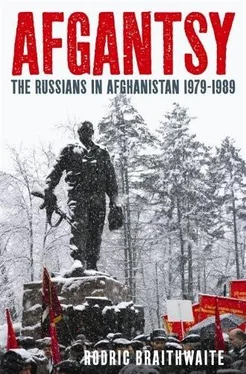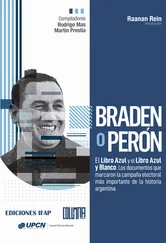The new leaders immediately set up a Revolutionary Council as the supreme political organ of the new Democratic Republic of Afghanistan. Taraki was named Head of State and Prime Minister, Karmal became his deputy, and Amin the Minister of Foreign Affairs. Watanjar, Rafi, and Kadyr were all given government posts. Although the portfolios were evenly distributed between Khalq and Parcham, Amin retained his influential links in the army.
On 9 May the new government issued a radical programme of social, political, and economic reform. ‘The Main Outlines of the Revolutionary Tasks’ proclaimed the eradication of illiteracy; equality for women; an end to ethnic discrimination; a larger role for the state in the national economy; and the abolition of ‘feudal and pre-feudal relationships’—code for the power of landowners, traditional leaders, and mullahs, especially in the countryside. As for Islam, when Kryuchkov visited Kabul on a fact-finding mission in July 1978, the new President, Taraki, told him to come back in a year, by which time the mosques would be empty. 12It was all a measure of how far out of touch the new regime was with the realities of their own country.
A woman was appointed to a top political position for the first time in modern Afghan history. Anakhita Ratebzad (1930–), a doctor by training, was one of four women members of the Afghan parliament in 1965, a founding member of the PDPA, and a member of Parcham. Her first husband had been Zahir Shah’s personal physician. Now she was the partner of Babrak Karmal. In the Kabul Times on 28 May, immediately after the coup, she stated firmly, ‘Privileges which women, by right, must have are equal education, job security, health services, and free time to rear a healthy generation for building the future of the country… Educating and enlightening women are now the subject of close government attention.’ A striking person in her own right, she succeeded in charming some of the most senior Soviet officials in Kabul, and they took care to remain on good terms with her as long as Karmal was in power.
The Soviet authorities were distinctly uneasy about what had happened. The Soviet Ambassador, Alexander Puzanov, attempted at the end of May to draw the threads together in a letter to Moscow. He argued that the failed politics of the Daud regime had led to ‘an abrupt sharpening of the contradictions between the Daud regime and its class supporters and the fundamental interests of the working masses, the voice of which is the PDPA’. The actions of the PDPA had been ‘met with approval by the popular masses’. This crude piece of Marxist analysis was characteristic of much of Moscow’s thinking about a country where it was almost totally inapplicable, a cast of thought which underlay some of the Russians’ later policy mistakes.
Puzanov nevertheless conceded that the continuing friction between Khalq and Parcham was already undermining the effectiveness of the new regime. This was a crucial weakness, and he and his specialist party advisers had told the new leadership that they must eliminate their differences. This, he admitted, had not yet happened. Nevertheless, he optimistically concluded that the overall situation was stabilising as the government took measures against the domestic reaction. 13
His optimism was misplaced. The new government’s programme was a mixture of typical Communist nostrums and some admirable aspirations. The new men had little or no practical experience in government. Whatever attractions the programme might have had in theory, it was not thought through and the people, especially in the villages, where most Afghans lived, were almost entirely unprepared for it. The promotion of women’s liberation and education for girls, laudable as it was in principle, came up against the same fiercely conservative prejudices which had plagued Afghanistan’s reforming kings. Revolts against the new regime began straight away, in both the towns and the villages. The countryside began to slip out of control.
The new government was nothing if not determined, however, and when persuasion failed it used ruthless measures of repression. It targeted not only known members of the opposition but also local leaders and mullahs who had committed no crime. Several generals, two former prime ministers, and others who had been close to Daud—up to forty in all—were executed immediately. Nine months after the coup, ninety-seven men from the influential Mojadedi clan were executed. The Islamists who had been imprisoned by Daud in the Pul-i Charkhi prison in Kabul were executed in June 1979. 14
In their fanaticism, and in their belief that a deeply conservative and proudly independent country could be forced into modernity at the point of a gun, the Afghan Communists resembled the Pol Pot regime. Unlike in Cambodia, however, in Afghanistan the people were not prepared to be treated in this way by their government. Previous rulers, such as Abdur Rahman, had imposed their authority throughout the country—more or less—by the most brutal methods. But they could make a plausible claim to be good Muslims, after a fashion. The Afghan Communists made the fatal mistake of underestimating the power of Islam and its hold on the people.
The Soviet Leaders Devise a Policy
The shocking news of the Herat rising on 15 March 1979 reached the embassy in Kabul and the Soviet leadership in Moscow in a fragmentary form, and was further confused by the self-interested accounts they were fed by the Afghan authorities. Valeri Ivanov, a senior Soviet economic advisor in Kabul, spent most of that day trying to get through to the Soviet experts in Herat. He managed to speak to the boss of the twenty-five Soviet construction workers there, a Georgian whose name was something like Magradze. The telephone kept on breaking down, but Ivanov could get a clear enough idea of what was happening. The mob was on the rampage, armed with pikes, staves, and knives. They were out for blood and, as they got closer, Magradze kept repeating, ‘Help us!’
There was little enough that Ivanov could do. But the men and their families were rescued by the senior Soviet military adviser in Kabul, Stanislav Katichev, and Shah Navaz Tanai, an Afghan officer who later became Minister of Defence. They sent an Afghan special forces unit with an old T-34 tank, a lorry, and a bus to evacuate the specialists and their families. The tank broke down on the way to the airport. By then, however, the crowd had been left behind and the refugees were flown to Kabul, wearing only what they stood up in. They were housed in the embassy school until they could be sent home. Ivanov’s wife, Galina, helped collect clothes for them. 15
Not everyone was so lucky. A Soviet wool buyer called Yuri Bogdanov lived with his pregnant wife, Alevtina, in a villa. When the crowd attacked, Bogdanov threw his wife over the wall to his Afghan neighbours. She broke her leg, but was hidden by the Afghans and survived. Bogdanov was butchered. A military adviser with the 17th Afghan Division, Major Nikolai Bizyukov, was also torn to pieces when part of the division mutinied. A Soviet oil expert was killed by a stray bullet when he went out into the street to see what was going on. Although the Western press and some Western historians continued to maintain that up to a hundred Soviet citizens were massacred, the total number of Soviet casualties in Herat seems to have been no more than three. They appear to have had no influence on the decisions which the Soviet government then took. 16
On hearing the news of the rising Andrei Gromyko (1909–89), the elderly Soviet Foreign Minister (he was seventy and had been in the job since 1957), telephoned Amin to find out what was going on. Amin claimed that the situation in Afghanistan was normal, that the army was in control, and that all the governors were loyal. Soviet help would be useful, he said, but the regime was in no danger. Gromyko found his ‘Olympian calm’ irritating. A mere three hours later, the chargé d’affaires in Kabul and the Chief Soviet Military Adviser, General Gorelov, rang through with a quite different and much less optimistic picture. The government forces in Herat, they said, had evidently collapsed or gone over to the rebels, who were now said to be backed by thousands of Muslim fanatics, and by saboteurs and terrorists trained and armed by the Pakistanis, the Iranians, the Chinese, and the Americans.
Читать дальше












